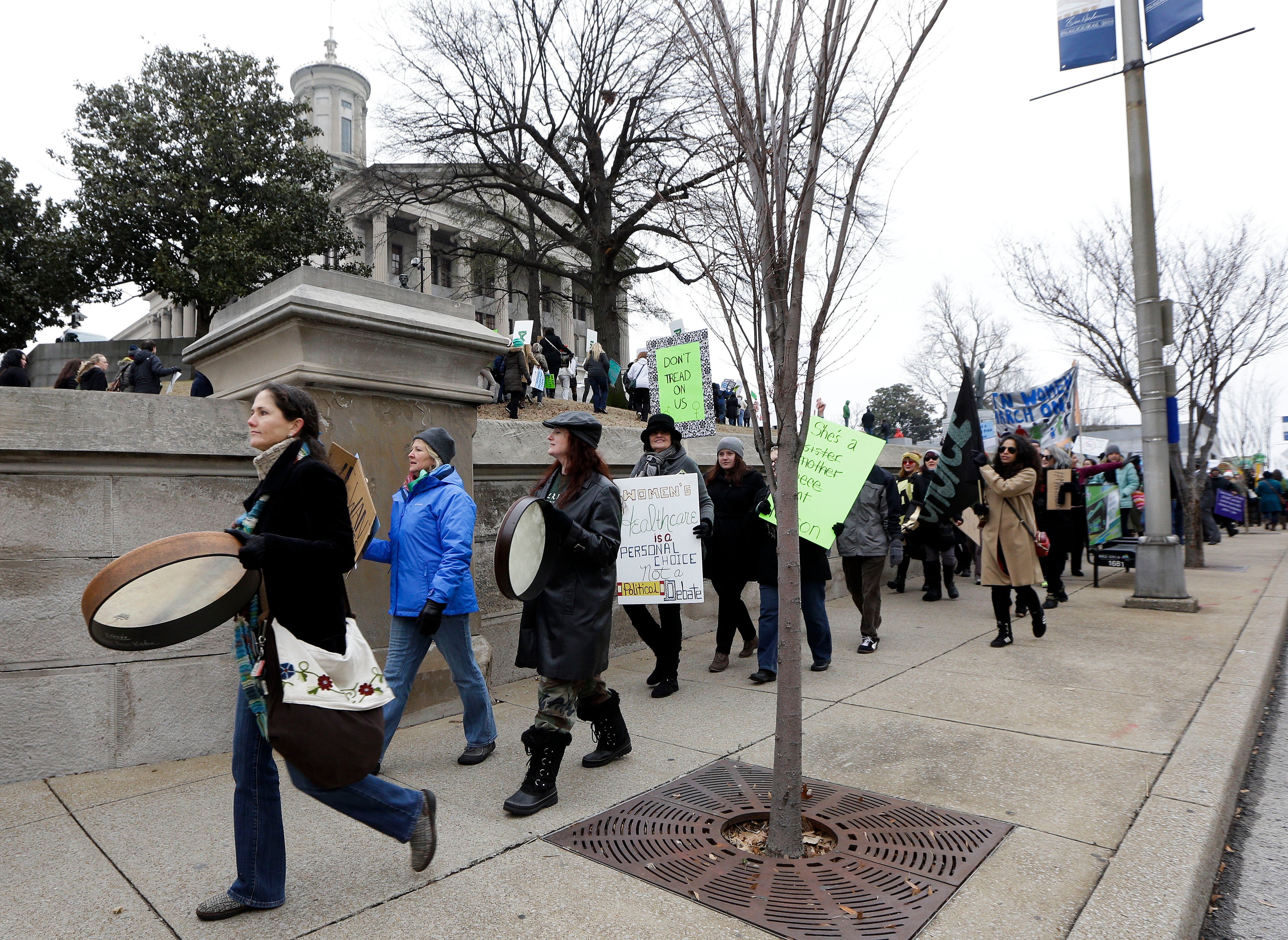Request to allow abortion waiting period in Tennessee denied
A federal court has denied a request to keep Tennessee’s 48-hour waiting period for abortions in effect while it hears an appeal of a lower court’s ruling that found the law unconstitutional

Your support helps us to tell the story
From reproductive rights to climate change to Big Tech, The Independent is on the ground when the story is developing. Whether it's investigating the financials of Elon Musk's pro-Trump PAC or producing our latest documentary, 'The A Word', which shines a light on the American women fighting for reproductive rights, we know how important it is to parse out the facts from the messaging.
At such a critical moment in US history, we need reporters on the ground. Your donation allows us to keep sending journalists to speak to both sides of the story.
The Independent is trusted by Americans across the entire political spectrum. And unlike many other quality news outlets, we choose not to lock Americans out of our reporting and analysis with paywalls. We believe quality journalism should be available to everyone, paid for by those who can afford it.
Your support makes all the difference.A federal court on Friday denied a request to keep Tennessee s 48-hour waiting period for abortions in effect while it hears an appeal of a lower court's ruling that found it unconstitutional.
U.S. District Judge Bernard Friedman ruled in October that Tennessee’s waiting period law serves no legitimate purpose while placing a substantial burden on women who seek abortions in Tennessee. The 2015 law required women to make two trips to an abortion clinic, first for mandatory counseling and then for the abortion at least 48 hours later.
Directors of Tennessee abortion clinics testified at the 2019 trial that the two-visit requirement posed logistical challenges that caused abortions to be delayed far beyond the 48 hours required by law. The delay pushed some women beyond the time when they could have medication abortions, which have lower risks of complications than surgical abortions. A few women were pushed beyond the time when they could receive an abortion altogether.
Tennessee had asked the 6th U.S. Circuit Court of Appeals to put aside Friedman's ruling until the state's appeal is resolved, arguing that Friedman erred in balancing the law's benefits with its burdens, applying the wrong legal standard. In a split 2-1 decision, a panel of 6th Circuit judges wrote that regardless of the analysis, the facts seem to point to the law posing an undue burden on women seeking abortion in Tennessee. The panel concluded that the state was not likely to succeed in its appeal and so was not entitled to have Friedman's ruling put on hold.
Writing for the majority, Judge Karen Nelson Moore said the Tennessee law “appears to be yet another unnecessary, unjustified, and unduly burdensome state law that stands between women and their right to an abortion.”
Judge Amul Thapar disagreed, writing that “the Supreme Court says that waiting periods are constitutional.”